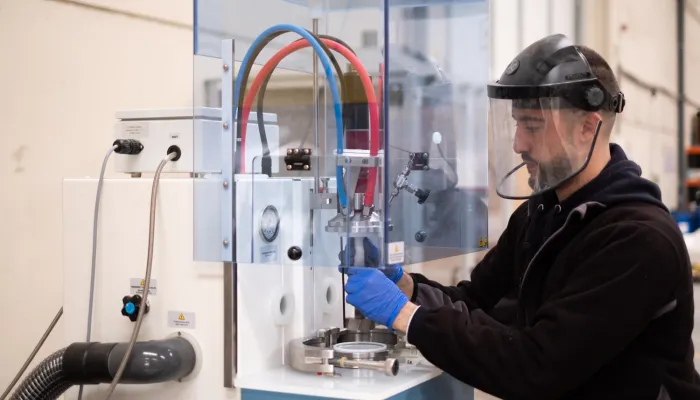Industrial decarbonization plans: a cost-effective business strategy for a sustainable future

Since 2000, the number and duration of droughts have increased by 29%. Without immediate interventions, water shortages could affect more than 75% of the world's population by 2050. Under the slogan "Our lands. Our future #GenerationRestoration", on World Environment Day 2024, it is crucial to reflect on strategies that can move the planet towards a more sustainable future.
A decarbonization plan is a comprehensive strategy that seeks to reduce and eventually eliminate Greenhouse Gas (GHG) emissions associated with its operations. Today, this tool is presented as one of the most efficient tactics to achieve a greener future. This involves adopting clean technologies, improving energy efficiency, using renewable energy sources and implementing sustainable practices throughout the value chain.
Beyond being a trend or a regulatory obligation, decarbonization is a viable economic opportunity for companies of any size and sector. With a well-defined strategic plan that evaluates all technologies and resources available on the market, companies can improve their efficiency, access new sources of financing and strengthen their corporate responsibility, thus contributing to the global goal of climate neutrality and aligning themselves with the spirit of #GenerationRestoration.
CIRCE: leading industrial decarbonization
CIRCE - Technology Center has more than 30 years of experience helping companies to improve their profitability and competitiveness in the market through the development and implementation of decarbonization plans. Its experience has allowed numerous companies to achieve significant economic and environmental benefits. Among others, they have managed to reduce heat losses and gas consumption by 59% in a steel and metallurgy company; increase energy efficiency by 9% thanks to the monitoring of 85% of the plant of an engine parts supplier or reduce waiting times in the parking lots of shopping centers by 50% through the implementation of a sustainable mobility plan.
The center is also helping the Zaragoza City Council to turn the Aragonese capital into a "lighthouse city" within the Mission of the "One hundred smart and climate-neutral cities by 2030".
Why are decarbonization plans so important?
Profitability and cost savings
A well-defined decarbonization plan can lead to a significant reduction in operating costs. Companies that invest in energy efficiency and clean technologies can see a considerable decrease in their energy and resource expenditures.
Access to new sources of financing
The plans represent a comprehensive strategy that opens doors to numerous competitive and financial advantages. Companies reduce their operating expenses through increased energy efficiency and resource optimization and position themselves favorably to access new sources of funding. This includes a variety of competitive European funds that prioritize projects committed to sustainable practices and carbon footprint reduction.
Adaptation to future regulations
With environmental regulations becoming increasingly stringent, anticipating these changes through a proactive decarbonization plan avoids penalties and positions the company as a responsible and visionary leader in its industry. Being prepared to comply with future regulations can avoid costly last-minute adaptations and ensure continued compliance.

Competitive advantages
Companies that adopt decarbonization strategies have a great opportunity to differentiate themselves in the marketplace. Sustainability has become an important criterion for consumers, investors and business partners.
Promotion of the circular economy
Promoting the circular economy by reusing and recycling materials is beneficial for the environment and can open up new market opportunities, as well as fostering business innovation. The adoption of circular practices can lead to the creation of new products and services, thus generating new sources of revenue and competitive differentiation.
Improving corporate responsibility
Companies that commit to sustainability enhance their reputation and credibility with customers, investors and the community at large. This expanded corporate responsibility not only improves the company's public image, but also attracts and retains talent, customers and business partners who value and prioritize sustainability.
Ultimately, a strategic plan is a critical piece on the road to decarbonization. By adopting measures that reduce environmental impact, companies improve their own performance and play a crucial role in restoration and sustainability, essential to ensure a prosperous and healthy future for generations to come.







